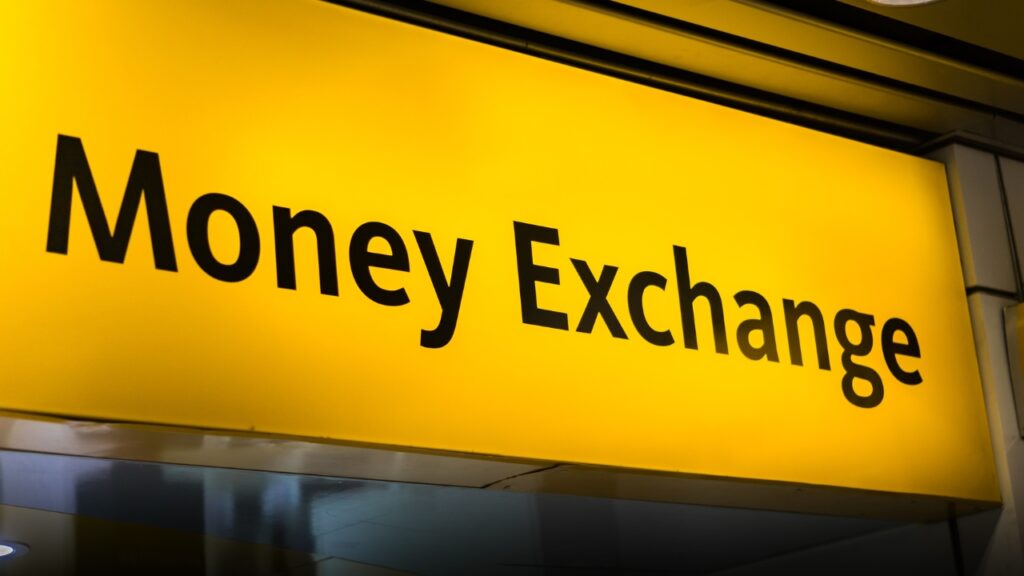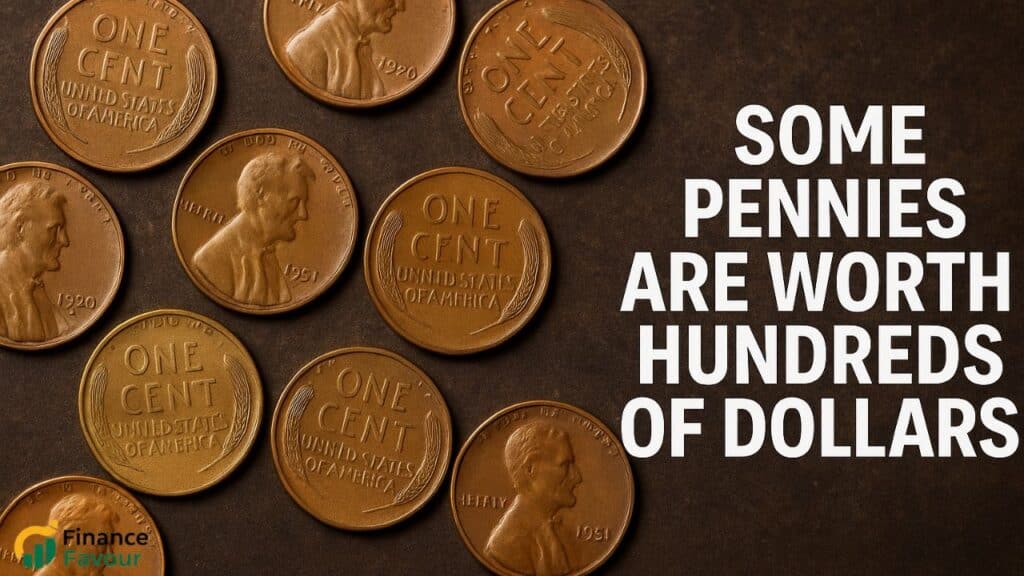Navigating the world of currency exchange can be daunting, especially when you’re aiming to avoid high fees and secure the best rates for your travels. Understanding where to exchange currency effectively is crucial for maximizing your budget and enhancing your journey. With a myriad of options available, from banks and airports to online services and local exchanges, determining the most cost-effective method requires careful consideration. In this guide, we’ll explore the ins and outs of currency exchange, providing you with practical tips on how to avoid exchange fees and find the best currency exchange options. Empower yourself with our expert insights and embark on your travels with confidence, knowing that your finances are in capable hands.
Understanding Currency Exchange Basics
Before diving into the best places to exchange currency, it’s crucial to grasp the fundamentals of currency exchange. This section will cover the essentials, including what currency exchange entails, why rates fluctuate, and common pitfalls to avoid.
What is Currency Exchange?
Currency exchange is the process of converting one country’s currency into another. This service is essential for international travelers, businesses engaged in global trade, and investors looking to diversify their portfolios.
The exchange rate determines how much of one currency you’ll receive for a given amount of another. These rates are influenced by various factors, including economic conditions, political stability, and market demand.
Understanding currency exchange is crucial for making informed financial decisions when traveling or conducting international transactions. It helps you maximize your purchasing power and avoid unnecessary losses due to unfavorable exchange rates.
Why Exchange Rates Vary
Exchange rates are in constant flux, influenced by a complex interplay of economic, political, and social factors. This volatility can significantly impact the value of your money when traveling or conducting international business.
Key factors affecting exchange rates include:
- Economic indicators (GDP, inflation, interest rates)
- Political stability and government policies
- Market speculation and investor sentiment
- Trade balances between countries
Understanding these influences can help you anticipate potential rate changes and make more informed decisions about when and where to exchange your currency.
Common Currency Exchange Mistakes
When exchanging currency, travelers often fall into several common traps that can cost them money and cause unnecessary stress. Being aware of these pitfalls can help you navigate the currency exchange process more effectively.
One frequent mistake is exchanging currency at the airport or hotel, where rates are typically less favorable. Another is failing to research current exchange rates before traveling, leaving you vulnerable to unfair deals.
Many travelers also overlook the impact of fees, which can significantly reduce the amount of foreign currency they receive. By avoiding these common errors, you can ensure you get the best value for your money when exchanging currency.
Where to Exchange Currency
Choosing the right place to exchange your currency can make a significant difference in the amount of foreign money you receive. This section explores various options, from traditional banks to online services, helping you make an informed decision.
Banks and Credit Unions
Banks and credit unions are often the first place people think of for currency exchange. These institutions typically offer reliable service and competitive rates, especially for their account holders.
Advantages of using banks for currency exchange include:
- Trustworthy and regulated service
- Possibility of better rates for account holders
- Access to a wide range of currencies
However, banks may have limited operating hours and sometimes charge higher fees compared to specialized exchange services. It’s also worth noting that smaller branches might not always have less common currencies readily available.
For the best experience, call ahead to check currency availability and consider ordering foreign currency in advance to secure better rates.
Airports and Hotels
Airports and hotels offer convenience for currency exchange, but this convenience often comes at a price. These locations typically have less favorable exchange rates and higher fees compared to other options.
The main advantage of airport and hotel currency exchanges is their accessibility, especially when you need local currency immediately upon arrival in a new country. However, it’s generally advisable to exchange only a small amount at these locations for immediate needs.
To make the most of airport or hotel exchanges:
- Research rates in advance to avoid surprises
- Exchange only what you need for immediate expenses
- Consider alternative options for larger amounts
Online Currency Exchange Services
Online currency exchange services have gained popularity in recent years, offering competitive rates and convenient transactions. These platforms allow you to exchange currency from the comfort of your home or on-the-go using mobile apps.
Benefits of online currency exchange include:
- Often more favorable rates than traditional brick-and-mortar exchanges
- Ability to compare rates easily across multiple providers
- Convenience of ordering currency for home delivery or pickup
When using online services, ensure you’re dealing with reputable providers by checking reviews and verifying their regulatory compliance. Also, factor in any delivery fees or processing times that might affect your travel plans.
How to Avoid Exchange Fees
Exchange fees can significantly eat into your travel budget if you’re not careful. This section provides strategies for minimizing these costs and maximizing the value of your currency exchange.
Tips for Finding Low Exchange Fees
Finding low exchange fees requires a combination of research, timing, and strategic decision-making. By following these tips, you can significantly reduce the cost of exchanging currency.
- Compare rates from multiple providers before making a decision.
- Consider using a multi-currency account or travel card to avoid repeated exchange fees.
- Exchange larger amounts less frequently to minimize per-transaction fees.
Remember that the lowest fee doesn’t always mean the best deal. Factor in the exchange rate alongside the fee to determine the true cost of your transaction.
Hidden Charges to Watch For
Hidden charges can quickly accumulate, turning what seemed like a good deal into an expensive mistake. Being aware of these potential costs can help you make more informed decisions.
Common hidden charges include:
- Commission fees (sometimes disguised as “service charges”)
- Delivery fees for online orders
- Minimum exchange amounts that may incur additional fees
Always read the fine print and ask about all applicable fees before proceeding with a currency exchange. Don’t hesitate to ask for a breakdown of charges if anything seems unclear.
Negotiating Better Rates
While not always possible, negotiating better rates can sometimes lead to significant savings, especially for larger transactions. This approach is more likely to succeed with local exchange offices or when dealing with substantial amounts.
Tips for successful negotiation:
- Research current market rates to know what’s reasonable
- Be prepared to walk away if you can’t get a satisfactory deal
- Consider bundling services (e.g., exchanging multiple currencies) for better leverage
Remember that major banks and airport kiosks are less likely to negotiate, so focus your efforts on local exchanges or when dealing with larger sums.
Best Currency Exchange Strategies
Developing a solid currency exchange strategy can help you maximize your money’s value and minimize unnecessary expenses. This section outlines key approaches to make the most of your currency exchange.
Timing Your Exchange
The timing of your currency exchange can significantly impact the value you receive. While it’s impossible to predict exchange rates with certainty, there are strategies to improve your chances of getting a favorable rate.
Consider these factors when timing your exchange:
- Monitor exchange rates in the weeks leading up to your trip
- Be aware of major economic or political events that could affect rates
- Consider exchanging in multiple transactions to average out rate fluctuations
While timing is important, don’t let it paralyze you. If you find a rate you’re comfortable with, it’s often better to exchange than to wait indefinitely for a potentially better rate.
Using Credit Cards Wisely
Credit cards can be a convenient and cost-effective way to manage expenses abroad, often offering better exchange rates than cash exchanges. However, using them wisely is key to avoiding unnecessary fees.
Best practices for using credit cards abroad:
- Use cards with no foreign transaction fees
- Opt for credit cards over debit cards for better fraud protection
- Always choose to pay in the local currency when given the option
Be aware that some merchants may charge extra fees for credit card use. In these cases, having some local currency on hand can be beneficial.
Prepaid Travel Money Cards
Prepaid travel money cards offer a balance between the security of credit cards and the budgeting control of cash. These cards allow you to load multiple currencies and use them like a debit card abroad.
Advantages of prepaid travel cards include:
- Locking in exchange rates before your trip
- Easier budgeting and expense tracking
- Reduced risk compared to carrying cash
However, be mindful of potential fees associated with these cards, such as ATM withdrawal charges or inactivity fees. Compare different providers to find the best fit for your travel needs.
Currency Exchange Tips for Travelers
Smart currency management can enhance your travel experience, allowing you to focus on enjoying your trip rather than worrying about money. This section provides practical advice for handling currency exchange as a traveler.
Planning Ahead for Currency Needs
Effective planning can save you money and reduce stress when it comes to managing your currency needs while traveling. By anticipating your expenses and preparing in advance, you can avoid last-minute exchanges at unfavorable rates.
Key steps in planning your currency needs:
- Estimate your daily expenses based on your destination and travel style
- Research the prevalence of cash vs. card usage at your destination
- Consider exchanging a portion of your currency before departure
Remember to factor in emergency funds and be prepared for unexpected expenses. Having a mix of payment methods (cash, cards, and perhaps travelers’ checks) can provide flexibility and security.
Keeping Track of Exchange Rates
Staying informed about exchange rates throughout your trip can help you make smart decisions about when and where to exchange currency or make large purchases.
Useful tools for tracking exchange rates include:
- Mobile apps that provide real-time currency conversion
- Websites that offer historical rate data and forecasts
- Setting up rate alerts for significant changes
While it’s important to stay informed, avoid obsessing over small fluctuations. Focus on the overall trend and make decisions based on your current needs and comfort level.
Staying Safe While Exchanging Money
Safety should be a top priority when handling currency exchange, especially in unfamiliar locations. Taking precautions can protect you from theft, fraud, and other risks associated with carrying or exchanging money abroad.
Safety tips for currency exchange:
- Use reputable exchange services, preferably recommended by your bank or trusted travel resources
- Be discreet when handling cash, especially in crowded areas
- Consider using a money belt or hidden pouch for carrying large amounts
If you’re uncomfortable with the security of a particular exchange location, trust your instincts and look for alternatives. Your safety is more important than saving a small amount on exchange rates.
Check this Post Mastering Personal Finance Management




